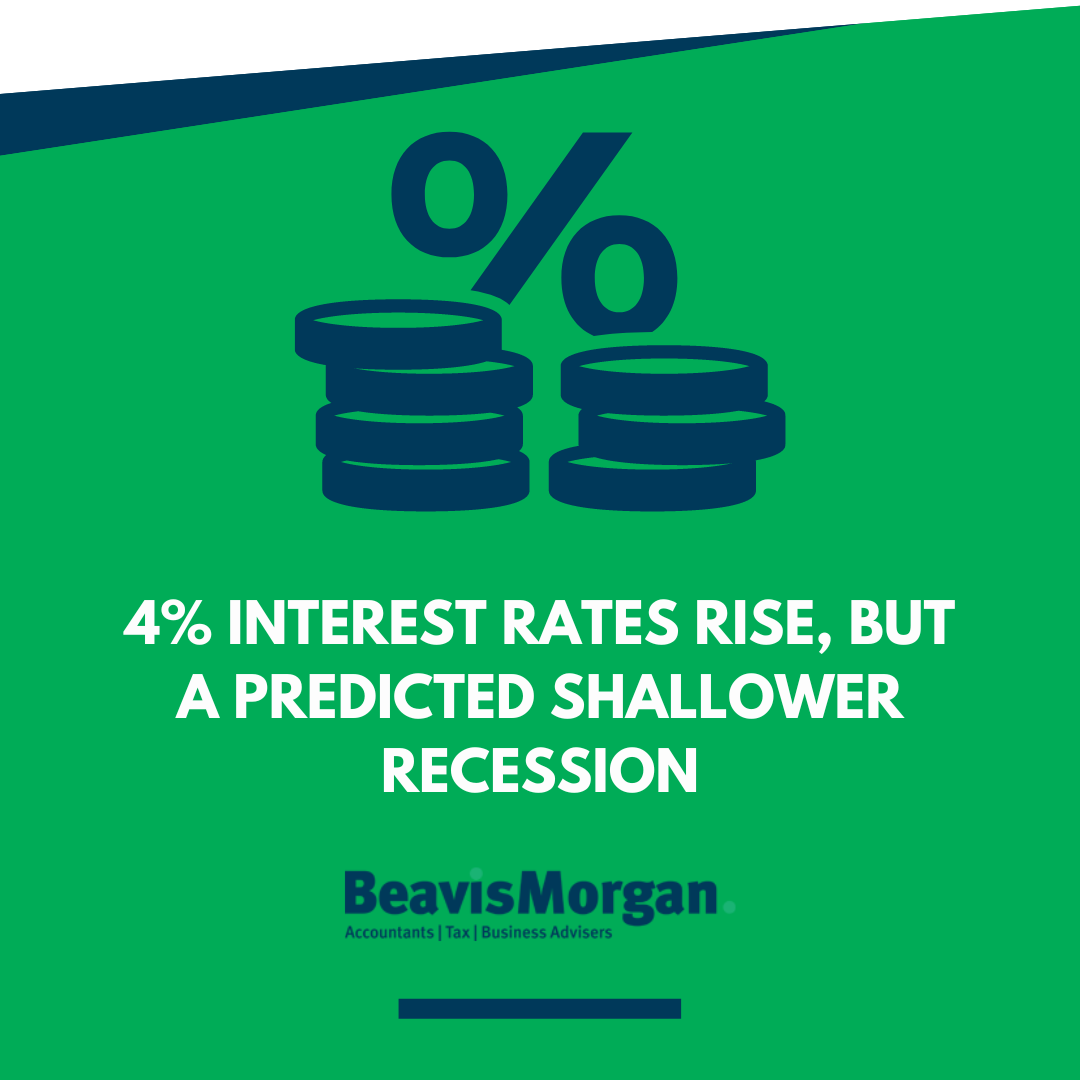The Bank of England has raised borrowing costs for the tenth time in a row, but predicts that the anticipated UK recession will be shallower and shorter than previously anticipated.
The decision to increase UK interest rates by 50 basis points to 4% was announced on February 2 by the Monetary Policy Committee (MPC), which directs the Bank of England’s monetary policy to achieve the 2% inflation target.
The MPC has raised rates by 50 basis points for the second consecutive month. The current level of UK interest rates is the highest since October 2008. By a vote of 7-2, the MPC decided to raise interest rates to 4%; however, two members—Swati Dhingra and Silvana Tenreyro—voted against the measure because they preferred to keep the Bank Rate at 3.5%. On March 23, 2023, interest rates will be announced again.
“Another substantial hike in interest rates will come as a painful blow to people and companies already struggling under myriad soaring cost pressures, with borrowers particularly affected,” says Suren Thiru, Economies Director for ICAEW. “The aggressive rate rises over the past year will increasingly drag on our economic prospects in 2023 as they filter into the broader economy, stifling activity and weakening confidence.
“With inflation projected to ease sharply, today’s 50bps rise should be the last of this magnitude. If we do slide into recession, then policymakers may be forced to reverse policy sooner than many expect.”
Additionally, the Bank of England made available its semi-annual Monetary Policy Report, which offers an update on the bank’s expectations for the UK economy. The central bank continues to predict that the UK will experience a recession this year, but it will be less severe and last less time than previously anticipated. As energy prices decline and inflation slows, the downturn is now anticipated to last just over a year rather than almost two. The Bank forecasts that inflation will return to 8% in June before further declining to 3% at the beginning of next year. The rate of wage increases, it cautioned, ran the risk of causing a slower drop in the rate of inflation.
While the economic environment and business conditions in the UK remain turbulent, SMEs have the advantage of being flexible and quick to respond to changing market conditions due to the size and nature of their businesses. The key is to work with the right specialist adviser, who will guide you through your strategy and assist you in making those critical business decisions that will determine your future success.
We can also assist with sourcing and restructuring debt financing for SME businesses through our partner business, Moorfields Advisory, as well as resolving issues that can impact business performance and success and finding innovative solutions for businesses and individuals in distress.
For more information about how we can assist you and your SME business, contact your usual Beavis Morgan Partner or email info@beavismorgan.com.

